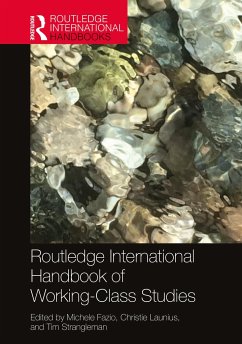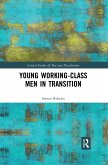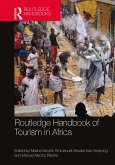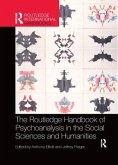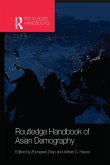Routledge International Handbook of Working-Class Studies
Herausgeber: Fazio, Michele; Strangleman, Tim; Launius, Christie
Routledge International Handbook of Working-Class Studies
Herausgeber: Fazio, Michele; Strangleman, Tim; Launius, Christie
- Broschiertes Buch
- Merkliste
- Auf die Merkliste
- Bewerten Bewerten
- Teilen
- Produkt teilen
- Produkterinnerung
- Produkterinnerung
The Routledge International Handbook of Working-Class Studies is a timely volume that provides an overview of this interdisciplinary field that emerged in the 1990s in the context of deindustrialization, the rise of the service economy, and economic and cultural globalization.
Andere Kunden interessierten sich auch für
![The Routledge Guide to Working in Criminal Justice The Routledge Guide to Working in Criminal Justice]() Ester RagoneseThe Routledge Guide to Working in Criminal Justice71,99 €
Ester RagoneseThe Routledge Guide to Working in Criminal Justice71,99 €![Young Working-Class Men in Transition Young Working-Class Men in Transition]() Steven RobertsYoung Working-Class Men in Transition57,99 €
Steven RobertsYoung Working-Class Men in Transition57,99 €![Routledge International Handbook of Sex Industry Research Routledge International Handbook of Sex Industry Research]() Routledge International Handbook of Sex Industry Research64,99 €
Routledge International Handbook of Sex Industry Research64,99 €![Routledge Handbook of Risk Studies Routledge Handbook of Risk Studies]() Routledge Handbook of Risk Studies65,99 €
Routledge Handbook of Risk Studies65,99 €![Routledge Handbook of Tourism in Africa Routledge Handbook of Tourism in Africa]() Routledge Handbook of Tourism in Africa278,99 €
Routledge Handbook of Tourism in Africa278,99 €![The Routledge Handbook of Psychoanalysis in the Social Sciences and Humanities The Routledge Handbook of Psychoanalysis in the Social Sciences and Humanities]() The Routledge Handbook of Psychoanalysis in the Social Sciences and Humanities66,99 €
The Routledge Handbook of Psychoanalysis in the Social Sciences and Humanities66,99 €![Routledge Handbook of Asian Demography Routledge Handbook of Asian Demography]() Routledge Handbook of Asian Demography63,99 €
Routledge Handbook of Asian Demography63,99 €-
-
-
The Routledge International Handbook of Working-Class Studies is a timely volume that provides an overview of this interdisciplinary field that emerged in the 1990s in the context of deindustrialization, the rise of the service economy, and economic and cultural globalization.
Produktdetails
- Produktdetails
- Verlag: Routledge
- Seitenzahl: 546
- Erscheinungstermin: 31. Dezember 2020
- Englisch
- Abmessung: 246mm x 174mm x 29mm
- Gewicht: 960g
- ISBN-13: 9781138709829
- ISBN-10: 1138709824
- Artikelnr.: 60023022
- Herstellerkennzeichnung
- Libri GmbH
- Europaallee 1
- 36244 Bad Hersfeld
- gpsr@libri.de
- Verlag: Routledge
- Seitenzahl: 546
- Erscheinungstermin: 31. Dezember 2020
- Englisch
- Abmessung: 246mm x 174mm x 29mm
- Gewicht: 960g
- ISBN-13: 9781138709829
- ISBN-10: 1138709824
- Artikelnr.: 60023022
- Herstellerkennzeichnung
- Libri GmbH
- Europaallee 1
- 36244 Bad Hersfeld
- gpsr@libri.de
Michele Fazio is Professor of English and Coordinator of Gender Studies at the University of North Carolina at Pembroke, US. Christie Launius is Associate Professor and Head of the Gender, Women, and Sexuality Studies Department at Kansas State University, US. Tim Strangleman is Professor of Sociology in the School of Social Policy, Sociology and Social Research, SSPSSR, at the University of Kent, Canterbury, UK.
Introduction Part I: Methods and Principles of Research in Working-Class
Studies Section Introduction: Methods and Principles of Research in
Working-Class Studies 1. Class Analysis from the Inside: Scholarly Personal
Narrative as a Signature Genre of Working-Class Studies 2. Reconceiving
Class in Contemporary Working-Class Studies 3. Mediating Stories of Class
Borders: First Generation College Students, Digital Storytelling, and
Social Class 4. The 'How to' of Working-Class Studies: Selves, Stories, and
Working Across Media Part II: Class and Education Section Introduction:
Class and Education 5. Class Beyond the Classroom: Supporting Working-Class
and First-Generation Students, Faculty, and Staff 6. Working Class Student
Experiences: Towards a Social Class-Sensitive Pedagogy for K-12 Schools,
Teachers, and Teacher Educators 7. The Pedagogy of Class: Teaching
Working-Class Life and Culture in the Academy 8. Being Working Class in the
English Classroom 9. Getting Schooled: Working-Class Students in Higher
Education 10. Learning Our Place: Social Reproduction in K-12 Schooling
Part III: Work and Community Section Introduction: Work and Community 11.
Deindustrialization and Its Consequences 12. Economic Dislocation and
Trauma 13. Working-Class Studies, Oral History and Industrial Illness 14.
Precarity's Affects: The Trauma of Deindustrialization 15. Feeling,
Re-imagined in Common: Working with Social Haunting in the English
Coalfields Part IV: Working-Class Cultures Section Introduction:
Working-Class Cultures 16. There Is a Genuine Working-Class Culture 17.
Class, Culture, and Inequality 18. Post-Traumatic Living: Precarious
Employment and Learned Helplessness in the Working Class 19. Activist Class
Cultures 20. The Australian Working Class in Popular Culture Part V:
Representations Section Introduction: Representations 21. Writing Dubai:
Indian Labour Migrants and Taxi Topographies 22. The Cinema of the
Precariat 23. The 'Body of Labor' in U.S. Postwar Documentary Photography:
A Working-Class Studies Perspective 24. Mapping Working-Class Art 25.
'Things that are left out': Working-Class Writing and the Idea of
Literature 26. Lit-Grit: The Gritty and the Grim in Working-Class Cultural
Production 27. Mass Incarceration, Prison Labor, Prison Writing 28.
Marketing Millennial Women: Embodied Class Performativity on American
Television Part VI: Activism and Collective Action Section Introduction:
Activism and Collective Action 29. From Stigma to Solution: Centering the
Community College through Activism in the Classroom and the Community 30.
Border Crossing with Day Laborers and Affordable Housing Activists 31.
Finding Class in Food Justice Efforts 32. The Mutual Determination of Class
and Race in the United States: History and Current Implications 33.
Documenting Lumbee Working-Class History: A Service-Learning Approach 34.
Precarious Workers and Social Mobilization in Portuguese Call Centre
Assembly Lines 35. Post-Fordist Affect: Unions, the Labor Movement, and the
Weight of History Conclusion
Studies Section Introduction: Methods and Principles of Research in
Working-Class Studies 1. Class Analysis from the Inside: Scholarly Personal
Narrative as a Signature Genre of Working-Class Studies 2. Reconceiving
Class in Contemporary Working-Class Studies 3. Mediating Stories of Class
Borders: First Generation College Students, Digital Storytelling, and
Social Class 4. The 'How to' of Working-Class Studies: Selves, Stories, and
Working Across Media Part II: Class and Education Section Introduction:
Class and Education 5. Class Beyond the Classroom: Supporting Working-Class
and First-Generation Students, Faculty, and Staff 6. Working Class Student
Experiences: Towards a Social Class-Sensitive Pedagogy for K-12 Schools,
Teachers, and Teacher Educators 7. The Pedagogy of Class: Teaching
Working-Class Life and Culture in the Academy 8. Being Working Class in the
English Classroom 9. Getting Schooled: Working-Class Students in Higher
Education 10. Learning Our Place: Social Reproduction in K-12 Schooling
Part III: Work and Community Section Introduction: Work and Community 11.
Deindustrialization and Its Consequences 12. Economic Dislocation and
Trauma 13. Working-Class Studies, Oral History and Industrial Illness 14.
Precarity's Affects: The Trauma of Deindustrialization 15. Feeling,
Re-imagined in Common: Working with Social Haunting in the English
Coalfields Part IV: Working-Class Cultures Section Introduction:
Working-Class Cultures 16. There Is a Genuine Working-Class Culture 17.
Class, Culture, and Inequality 18. Post-Traumatic Living: Precarious
Employment and Learned Helplessness in the Working Class 19. Activist Class
Cultures 20. The Australian Working Class in Popular Culture Part V:
Representations Section Introduction: Representations 21. Writing Dubai:
Indian Labour Migrants and Taxi Topographies 22. The Cinema of the
Precariat 23. The 'Body of Labor' in U.S. Postwar Documentary Photography:
A Working-Class Studies Perspective 24. Mapping Working-Class Art 25.
'Things that are left out': Working-Class Writing and the Idea of
Literature 26. Lit-Grit: The Gritty and the Grim in Working-Class Cultural
Production 27. Mass Incarceration, Prison Labor, Prison Writing 28.
Marketing Millennial Women: Embodied Class Performativity on American
Television Part VI: Activism and Collective Action Section Introduction:
Activism and Collective Action 29. From Stigma to Solution: Centering the
Community College through Activism in the Classroom and the Community 30.
Border Crossing with Day Laborers and Affordable Housing Activists 31.
Finding Class in Food Justice Efforts 32. The Mutual Determination of Class
and Race in the United States: History and Current Implications 33.
Documenting Lumbee Working-Class History: A Service-Learning Approach 34.
Precarious Workers and Social Mobilization in Portuguese Call Centre
Assembly Lines 35. Post-Fordist Affect: Unions, the Labor Movement, and the
Weight of History Conclusion
Introduction Part I: Methods and Principles of Research in Working-Class
Studies Section Introduction: Methods and Principles of Research in
Working-Class Studies 1. Class Analysis from the Inside: Scholarly Personal
Narrative as a Signature Genre of Working-Class Studies 2. Reconceiving
Class in Contemporary Working-Class Studies 3. Mediating Stories of Class
Borders: First Generation College Students, Digital Storytelling, and
Social Class 4. The 'How to' of Working-Class Studies: Selves, Stories, and
Working Across Media Part II: Class and Education Section Introduction:
Class and Education 5. Class Beyond the Classroom: Supporting Working-Class
and First-Generation Students, Faculty, and Staff 6. Working Class Student
Experiences: Towards a Social Class-Sensitive Pedagogy for K-12 Schools,
Teachers, and Teacher Educators 7. The Pedagogy of Class: Teaching
Working-Class Life and Culture in the Academy 8. Being Working Class in the
English Classroom 9. Getting Schooled: Working-Class Students in Higher
Education 10. Learning Our Place: Social Reproduction in K-12 Schooling
Part III: Work and Community Section Introduction: Work and Community 11.
Deindustrialization and Its Consequences 12. Economic Dislocation and
Trauma 13. Working-Class Studies, Oral History and Industrial Illness 14.
Precarity's Affects: The Trauma of Deindustrialization 15. Feeling,
Re-imagined in Common: Working with Social Haunting in the English
Coalfields Part IV: Working-Class Cultures Section Introduction:
Working-Class Cultures 16. There Is a Genuine Working-Class Culture 17.
Class, Culture, and Inequality 18. Post-Traumatic Living: Precarious
Employment and Learned Helplessness in the Working Class 19. Activist Class
Cultures 20. The Australian Working Class in Popular Culture Part V:
Representations Section Introduction: Representations 21. Writing Dubai:
Indian Labour Migrants and Taxi Topographies 22. The Cinema of the
Precariat 23. The 'Body of Labor' in U.S. Postwar Documentary Photography:
A Working-Class Studies Perspective 24. Mapping Working-Class Art 25.
'Things that are left out': Working-Class Writing and the Idea of
Literature 26. Lit-Grit: The Gritty and the Grim in Working-Class Cultural
Production 27. Mass Incarceration, Prison Labor, Prison Writing 28.
Marketing Millennial Women: Embodied Class Performativity on American
Television Part VI: Activism and Collective Action Section Introduction:
Activism and Collective Action 29. From Stigma to Solution: Centering the
Community College through Activism in the Classroom and the Community 30.
Border Crossing with Day Laborers and Affordable Housing Activists 31.
Finding Class in Food Justice Efforts 32. The Mutual Determination of Class
and Race in the United States: History and Current Implications 33.
Documenting Lumbee Working-Class History: A Service-Learning Approach 34.
Precarious Workers and Social Mobilization in Portuguese Call Centre
Assembly Lines 35. Post-Fordist Affect: Unions, the Labor Movement, and the
Weight of History Conclusion
Studies Section Introduction: Methods and Principles of Research in
Working-Class Studies 1. Class Analysis from the Inside: Scholarly Personal
Narrative as a Signature Genre of Working-Class Studies 2. Reconceiving
Class in Contemporary Working-Class Studies 3. Mediating Stories of Class
Borders: First Generation College Students, Digital Storytelling, and
Social Class 4. The 'How to' of Working-Class Studies: Selves, Stories, and
Working Across Media Part II: Class and Education Section Introduction:
Class and Education 5. Class Beyond the Classroom: Supporting Working-Class
and First-Generation Students, Faculty, and Staff 6. Working Class Student
Experiences: Towards a Social Class-Sensitive Pedagogy for K-12 Schools,
Teachers, and Teacher Educators 7. The Pedagogy of Class: Teaching
Working-Class Life and Culture in the Academy 8. Being Working Class in the
English Classroom 9. Getting Schooled: Working-Class Students in Higher
Education 10. Learning Our Place: Social Reproduction in K-12 Schooling
Part III: Work and Community Section Introduction: Work and Community 11.
Deindustrialization and Its Consequences 12. Economic Dislocation and
Trauma 13. Working-Class Studies, Oral History and Industrial Illness 14.
Precarity's Affects: The Trauma of Deindustrialization 15. Feeling,
Re-imagined in Common: Working with Social Haunting in the English
Coalfields Part IV: Working-Class Cultures Section Introduction:
Working-Class Cultures 16. There Is a Genuine Working-Class Culture 17.
Class, Culture, and Inequality 18. Post-Traumatic Living: Precarious
Employment and Learned Helplessness in the Working Class 19. Activist Class
Cultures 20. The Australian Working Class in Popular Culture Part V:
Representations Section Introduction: Representations 21. Writing Dubai:
Indian Labour Migrants and Taxi Topographies 22. The Cinema of the
Precariat 23. The 'Body of Labor' in U.S. Postwar Documentary Photography:
A Working-Class Studies Perspective 24. Mapping Working-Class Art 25.
'Things that are left out': Working-Class Writing and the Idea of
Literature 26. Lit-Grit: The Gritty and the Grim in Working-Class Cultural
Production 27. Mass Incarceration, Prison Labor, Prison Writing 28.
Marketing Millennial Women: Embodied Class Performativity on American
Television Part VI: Activism and Collective Action Section Introduction:
Activism and Collective Action 29. From Stigma to Solution: Centering the
Community College through Activism in the Classroom and the Community 30.
Border Crossing with Day Laborers and Affordable Housing Activists 31.
Finding Class in Food Justice Efforts 32. The Mutual Determination of Class
and Race in the United States: History and Current Implications 33.
Documenting Lumbee Working-Class History: A Service-Learning Approach 34.
Precarious Workers and Social Mobilization in Portuguese Call Centre
Assembly Lines 35. Post-Fordist Affect: Unions, the Labor Movement, and the
Weight of History Conclusion

